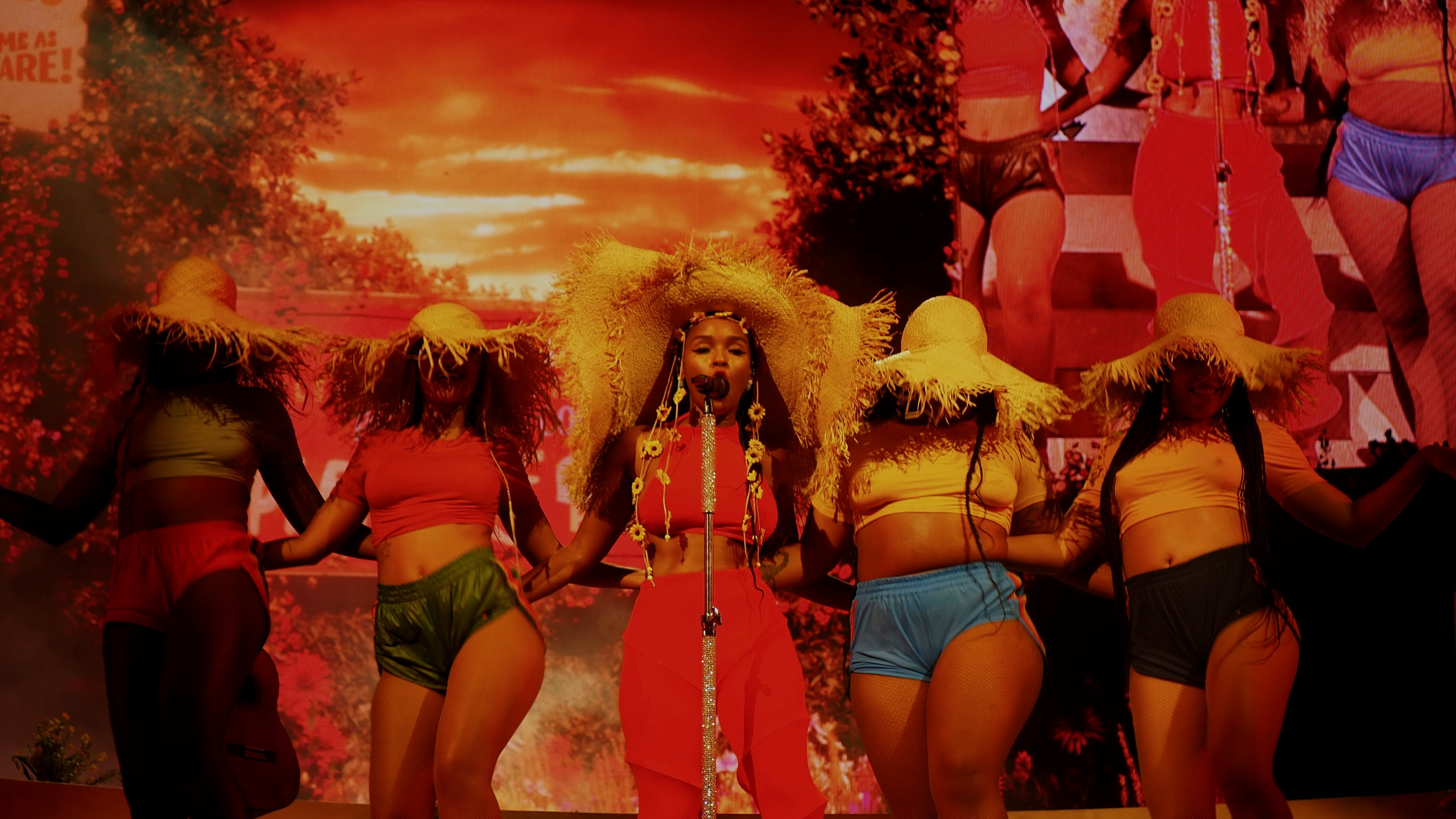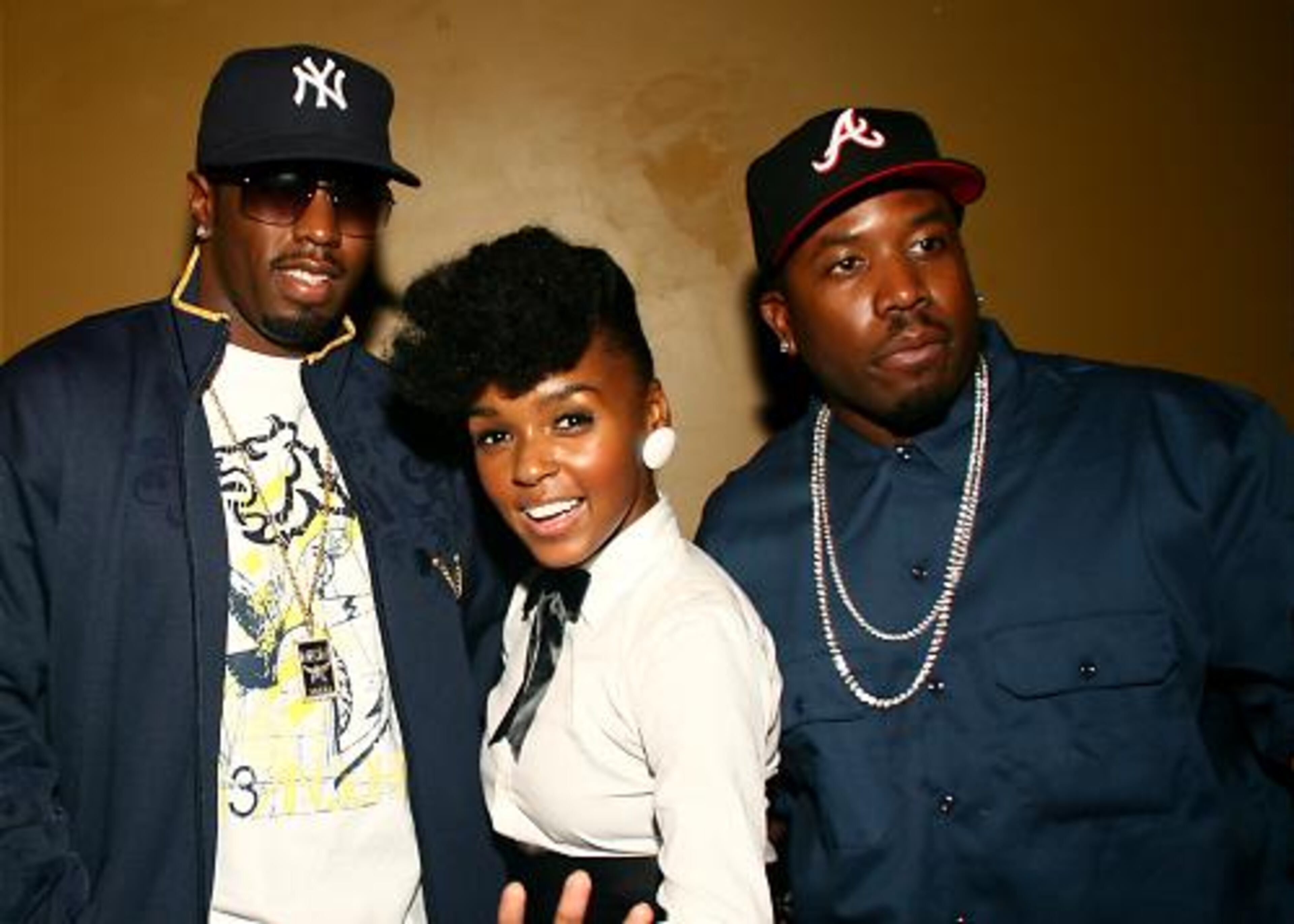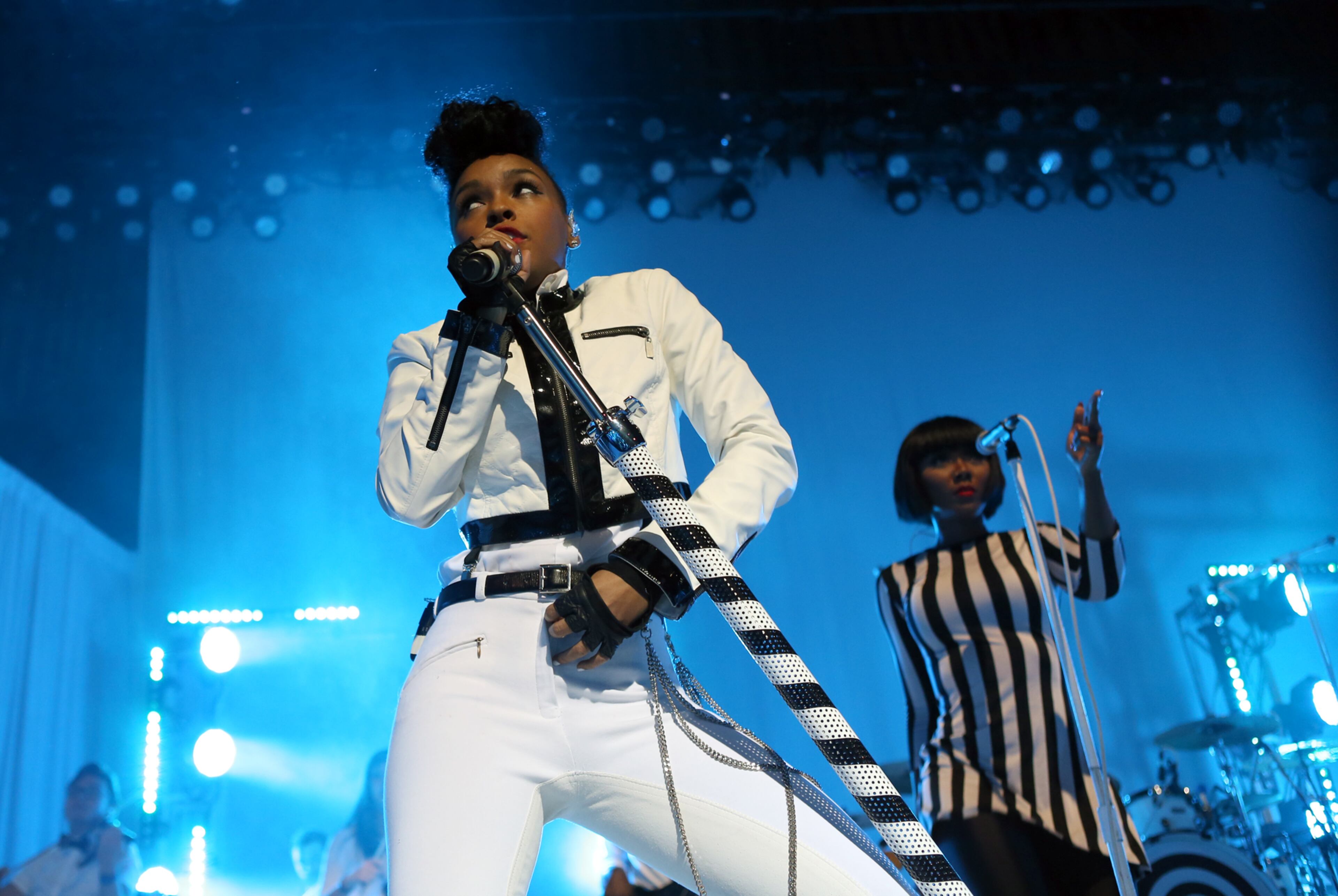For Janelle Monáe, it’s all about pleasure and freedom

In Toni Morrison’s 1977 novel “Song of Solomon,” she wrote, “Wanna fly, you got to give up the (expletive) that weighs you down.” It’s a potent yet tell-it-like-it-is definition of freedom that sounds easier said than done. But the emancipatory ethos of Janelle Monáe’s sound usurps that plight, making freedom feel as accessible as an item pulled from your closet.
“I realized that I was free when I came out of my mom’s womb and the nurse slapped my butt, and I slapped her back ... Freedom to me now means sort of the same thing. If somebody slaps my butt, I could just slap them back,” Monáe said.
For over a decade, Monáe’s music has created Afrofuturist universes that uplift bodily autonomy, inclusive sexual expression and Black power that position the polymath as a leader in creating songs that are not only comforting for Black and queer communities but indelibly essential. It’s a trajectory that began for Monáe, whose pronouns are they/them, she/her, in Atlanta, and she credits the city for helping to find her voice and purpose. She returns on Oct. 6 to tour her latest album “The Age of Pleasure.”
Welcome to Atlanta
Born to a working-class family in Kansas City, Kansas, Monáe relocated to Atlanta in the early 2000s after a stint at the American Musical and Dramatic Academy in New York City. Though she was appreciative of her time at the conservatory, she felt something was missing.
Monáe was introduced to the city by a friend who attended Clark Atlanta University at that time. She instantly fell in love with the shared sense of camaraderie at the Atlanta University Center.
“I didn’t really have that community of other like-minded Black, artistic, business-savvy minds who were trying to change the world,” Monáe said. “When I got (to Atlanta), it just made me say, like, ‘These are my people. I wanna spend time in Atlanta, and I’ll also do music.’ I wanted a college experience, and I wanted to find my community.”
She enrolled in Perimeter College at Georgia State University, learned to play the guitar, moved into a boarding house on Parsons Street and started singing at college campuses and anywhere else she could to make ends meet.
“I was poor. I was working at Office Depot. I was doing taxes. I was doing telemarketing and trying to figure out my voice,” she said.
Monáe tested her music on the steps of the AUC Woodruff Library, aka Club Woody, where she introduced audiences to the black-and-white tuxedo style fashion that defined her look early in her career.
“When I started to understand how my music was resonating, then that helped me find my voice,” Monáe said. I was like, ‘Oh, OK, the things that I’m saying, there are more people who are agreeing with them who find peace. They find themselves in this music, you know, even if it is 10 people.’ Sometimes, that’s all you need.”

Monáe swiftly captured the attention of industry giants like Outkast, with whom she worked on the duo’s 2006 album “Idlewild,” and Diddy, who later signed Monáe to his Bad Boy label.
Jason Orr, founder of the legendary FunkJazz Kafe music festival known for highlighting underground artists in Atlanta and beyond, remembers seeing a young Monáe perform at Smith’s Olde Bar. Fascinated by her dynamic stage presence, he invited her to perform at the festival in 2007.
“She would bring the black-and-white tile for the floor, and she would bring two cans of lights that she would put on each side of the stage that shot up and would make her look like a big figure, almost a shadow self ... to think about your production other than your performance, I was thoroughly impressed,” said Orr. “It’s like (seeing) a child walking around with a briefcase, like, ‘Oh, they mean business’.”
That same year, Monáe released her debut EP “Metropolis: Suite 1 (The Chase).” The five-track project was an intergalactic fusion of R&B, rock, soul, funk and pop that felt like a cinematic experience. “Metropolis” garnered Monáe’s first Grammy nomination and sparked the beginning of her relationship with Prince, who became a mentor. (The pair later collaborated on 2013′s “Givin’ ‘Em What They Love.”)

Since then, Monáe has released four albums, including the 2018 breakthrough “Dirty Computer,” which earned a Grammy nomination for Album of the Year. She has starred in highly acclaimed films such as the Oscar-winning “Moonlight” and last year’s Netflix sensation “Glass Onion: A Knives Out Mystery.” And she launched the Atlanta-based artist collective, record label and production house Wondaland.
Finding pleasure in the present
On her latest album, “The Age of Pleasure,” Monáe ditches the signature sci-fi fantasy themes for a sound more focused on the present. At the moment, her pleasure is rooted in the party, and Monáe’s only purpose is to invite everyone to the dance floor to discover their own freedom.
Getting to that point, though, wasn’t easy. Becoming the face and sound of freedom required a personal reckoning.
“It took a lot of not feeling guilty about it and realizing that centering community and joy is also an act of rebellion within itself. When I think about the albums that I’ve written and what inspired them, fighting against oppression and fighting against oppressors was sort of at the center of it.” She was “writing songs that I always had to think about,” she said. But for her new album, “I just wanted to do something (different).”
The result is Monáe’s most liberated album to date. Across 14 tracks, Monáe embraces a sensuality and confidence that oozes from each track, even down to the features, which include the dazzling visionary Grace Jones and the Black cult-classic queen Nia Long.
“The Age of Pleasure” invites a life devoid of capitalism and filled with rest and joy that becomes its own source of opulence on “Champagne (Expletive).” The Doechii-assisted track “Phenomenal” can also pose as a book of daily affirmations (“I’m looking at a thousand versions of myself / And we’re all fine as (expletive)”). While “Float,” the album’s lead single, centers the freedom of self, “Lipstick Lover” shares that freedom with others.
The video for the latter (which was one of the first songs created for the album) features Monáe’s head warmly caressing a woman’s bare behind like a pillow. It’s just one of many NSFW scenes in the video that embraces the sexual liberation that makes Monáe adored by fans and critiqued by those who don’t understand her.
One of the most recent examples of the that occurred this summer after Monáe performed at the Essence Festival in New Orleans. During her set, Monáe flashed her breast. She also helped facilitate an impromptu twerking session with fans onstage during the performance of Houston rapper Megan Thee Stallion, who headlined the festival. Artists including India Arie and Uncle Luke denounced the performances, prompting Monáe to respond, “I love everyone.”
She doesn’t concern herself with those who aren’t in her community.
“She’s not afraid to take risks,” said Bobbi Lanea, one-half of Flyana Boss, a budding rap duo opening for Monáe’s tour, which began in Seattle in August and ends in Inglewood, California, in October. “She’s very theatrical. She’s had a lot of transitions throughout her career and you can kind of see that through the show. At the end of it, she goes back to that traditional black-and-white Janelle that we all first knew, so it’s fun to see the wide array of a performer that she is.”
For the Atlanta tour stop, Monáe hopes her music reaches audiences the same way it did more than 10 years ago on the steps of Club Woody. At that time, Monáe was trying to find her voice and support system. Even now, the artist describes herself as “a caterpillar ... a very, very, very sexy, curvy caterpillar.” A caterpillar that’s still evolving and welcoming each phase of her career with ease.
In 2007, the world was introduced to Janelle Monáe as the afro-sporting, tuxedo-wearing ethereal showman whose alter ego was a cyborg named Cindi Mayweather. Roughly a decade later, she’s ditched her suit to embrace her curves and sexuality while celebrating all of the “dirty computers.” Now, she’s in an age of pleasure that guides her mind, spirit and soul.
“‘The Age of Pleasure’ is the de-centering of chaos and the re-centering of love and of joy and centering that unapologetically and taking those moments for yourself and with others,” she said. “I think that, obviously, there are so many things going on in the world that wanna make you fight, wanna make you scream, wanna make you riot. But as an act of revolution, I’m choosing to center joy and center the people that I think need it the most.”
CONCERT PREVIEW
Janelle Monáe. The Age of Pleasure Tour. 8 p.m. Friday, Oct. 6. $51.50-$127.00. Fox Theatre, 660 Peachtree St NE, Atlanta. 855-285-8499, foxtheatre.org.



